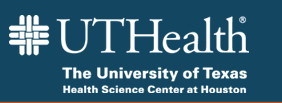Role of the Orexin Receptor System in Stress, Sleep and Cocaine Use
| Status: | Completed |
|---|---|
| Conditions: | Anxiety, Anxiety |
| Therapuetic Areas: | Psychiatry / Psychology |
| Healthy: | No |
| Age Range: | 19 - 55 |
| Updated: | 11/22/2018 |
| Start Date: | May 2016 |
| End Date: | November 15, 2018 |
The purpose of this study is to determine the effectiveness of a medication called suvorexant
in reducing anxiety, improving sleep, and reducing cocaine cravings or cocaine use.
in reducing anxiety, improving sleep, and reducing cocaine cravings or cocaine use.
Preclinical research has established important functions for the orexin system in mediating
arousal/sleep, stress, and cue-induced reinstatement of drug taking (e.g., relapse). The role
of stress/anxiety and drug cue reactivity in human drug relapse is well established, but to
date, the role of the orexin system in modulating these phenomena has not been examined in
humans with substance use disorders (e.g., cocaine). The goal of the present first-in-human
study will be to examine the effects of an orexin antagonist (suvorexant) on interactions
among stress/anxiety, sleep, and drug-cue reactivity. The study will utilize a battery of
highly sensitive, drug-specific, laboratory measures of drug cue reactivity (a relapse risk
model), and well-established metrics of stress/anxiety and sleep. The hypothesis is that
antagonism of the orexin system will attenuate the link between (1) stress/anxiety and drug
cue reactivity, and (2) sleep and drug cue reactivity. These results will elucidate a unique
biochemical mechanism for understanding relapse, and provide a potential medication target
for relapse prevention.
arousal/sleep, stress, and cue-induced reinstatement of drug taking (e.g., relapse). The role
of stress/anxiety and drug cue reactivity in human drug relapse is well established, but to
date, the role of the orexin system in modulating these phenomena has not been examined in
humans with substance use disorders (e.g., cocaine). The goal of the present first-in-human
study will be to examine the effects of an orexin antagonist (suvorexant) on interactions
among stress/anxiety, sleep, and drug-cue reactivity. The study will utilize a battery of
highly sensitive, drug-specific, laboratory measures of drug cue reactivity (a relapse risk
model), and well-established metrics of stress/anxiety and sleep. The hypothesis is that
antagonism of the orexin system will attenuate the link between (1) stress/anxiety and drug
cue reactivity, and (2) sleep and drug cue reactivity. These results will elucidate a unique
biochemical mechanism for understanding relapse, and provide a potential medication target
for relapse prevention.
Inclusion Criteria:
- meet current DSM-5 criteria for cocaine use disorder (CUD) of at least moderate
severity (≥4 symptoms)
Exclusion Criteria:
- current DSM-IV diagnosis of any psychoactive substance dependence other than cocaine,
marijuana, or nicotine
- have a DSM-IV axis I psychiatric disorder or neurological disease or disorder
requiring ongoing treatment and/or making study participation unsafe
- significant current suicidal or homicidal ideation
- medical conditions contraindicating administration of suvorexant (e.g., severe
pulmonary disease, severe cardiovascular disease or clinically abnormal EEG, severe
liver or kidney disease, seizure disorder, or sleep disorder - particularly
narcolepsy)
- taking medications known to have significant drug interactions with the study
medication(s) (e.g., MAO inhibitors, anticonvulsants, haloperidol, phenothiazines,
anesthetics, and all sedatives)
- currently or recently (last 3 months) treated for substance use [other than cocaine or
nicotine] or another psychiatric condition
- conditions of probation or parole requiring reports of drug use to officers of the
court; (8) impending incarceration
- pregnant or nursing for female patients
- inability to read, write, or speak English [required for lab tasks and psychometric
scales]
- unwillingness to sign a written informed consent form
- subjects with alcohol use disorders or are drinking > 7 alcoholic drinks per week. All
subjects who are excluded will be given referral information to other local treatment
programs.
We found this trial at
1
site
7000 Fannin St
Houston, Texas 77030
Houston, Texas 77030
(713) 500-4472

Phone: 713-486-2535
University of Texas Health Science Center at Houston The University of Texas Health Science Center...
Click here to add this to my saved trials